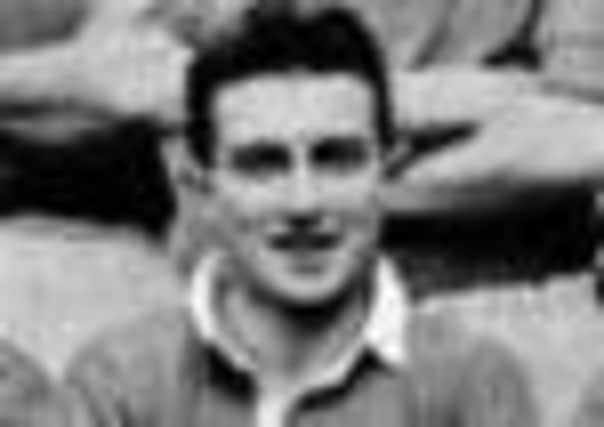Obituary: Johnny Downie, footballer


JOHNNY Downie was Manchester United’s most expensive footballer when he was signed by his fellow Lanarkshire native Matt Busby in 1949, at the age of 23, for the princely sum of £18,000. It may not sound like much compared with the tens of millions of pounds paid for players nowadays, but it was a far cry from the coal mines where he had served as a “Bevin Boy” during the war. And it could have bought a few decent homes and cars at the time.
It was also a massive sum for a club struggling to recover from the war years after the Luftwaffe damage to Old Trafford which forced them to use their rival Manchester City’s Maine Road ground until the 1949-50 season
Advertisement
Hide AdAdvertisement
Hide AdAppearing during five seasons with United until 1953, Downie, an inside forward who usually wore the Number 8 shirt and had a goalscoring knack, helped the team to the English First Division title in 1951-2 – their first in more than 40 years. They had twice finished runners-up over the three previous seasons.
That success helped Busby to build a new young side in the mid-1950s which became known as the Busby Babes but was devastated by the 1958 Munich air crash.
Although Downie left the club in 1953, he witnessed the development of many of those young players, including teenage wing-half sensation Duncan Edwards and centre-forward Tommy Taylor, both of whom perished in the crash.
John Dennis Downie was born in Lanark on 19 July, 1925 and first played football for the Lanark Air Training Corps before moving south as an amateur with Bradford Park Avenue, a Football League Second Division side at the time.
But with football taking second place to the war effort, at age 18 he found himself down the pits of West Yorkshire as one of the conscripted “Bevin Boys” who helped keep the home fires burning after most miners of fighting age went to war.
It was in the Fryston colliery near Castleford that he met another Bevin Boy, Len Shackleton, who would go on to play football for Newcastle, Sunderland and England. Both men played in the Fryston Colliery Welfare Association Football Club, a useful amateur side at the time.
Ernest Bevin, Minister of Labour and National Service, had come up with the idea of young conscripts and volunteers to keep the coal coming, a vital part of the war effort which went largely unrecognised until more than half a century later.
Shortly before leaving office as prime minister, Tony Blair announced that former Bevin Boys would be awarded a Veterans’ Badge similar to those awarded to frontline war veterans. His successor Gordon Brown handed out the first such badges at a Downing Street reception in 2008.
Advertisement
Hide AdAdvertisement
Hide AdAfter the war, Downie returned to Bradford Park Avenue as a professional, netting a healthy 33 goals in 86 league appearances as well as laying on many more for their various centre-forwards.
It was at the start of March 1949 that Busby was impressed enough to fork out that £18,000 to replace the disgruntled inside forward Johnny Morris, who went to Derby County.
Busby still had change out of the £24,500 Derby paid for Morris, a British record fee at the time.
Downie justified Busby’s faith in him by scoring on his debut in a 3-2 win over Charlton Athletic in front of a 55,000 crowd at The Valley on 5 March, 1949. He helped his team go on to be First Division runners-up to Portsmouth that year.
During the best part of five seasons, Downie netted 37 times for United, including five in the FA Cup, in a total of 116 appearances. He also laid on countless more goals for the side’s great frontmen Stan Pearson and Jack Rowley.
And yet he never became an automatic first team choice at United and many felt he did not quite realise his full potential.
As his manager was grooming the Busby Babes, Downie was sold to Luton Town for £10,000 in 1953, netting a hat-trick on his debut. He later played for Hull City, Mansfield Town and Darlington in the league, as well as several English non-league sides.
After retiring from football, Downie ran a newsagent in Bradford before moving in the mid-1980s to the seaside at Tynemouth, near North Shields, where he could be found watching local sides North Shields FC and Whitley Bay FC.
Johnny Downie is survived by his wife Norma, children and grandchildren.